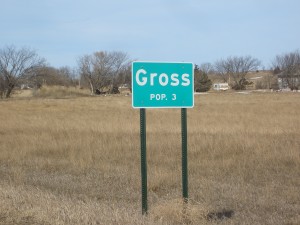
“Good Lawyers Don’t Market” and Other Myths that Keep Small Law Practices Small
- Home Uncategorized
- “Good Lawyers Don’t Market” and Other Myths that Keep Small Law Practices Small

“Good Lawyers Don’t Market” and Other Myths that Keep Small Law Practices Small
“Good lawyers don’t market”
You hear it in law school, from your professors, and from other lawyers.
When you worked your first job after getting your JD, you became a lawyer. But when you made the jump to running your own practice, you also became a business owner.
And no business owner in their right mind would leave growing their firm to chance.
“Build it and they will come” is a strategy that stopped working in the days of Noah. These days, every business (including law firms) face increased competition and need a strategy in place to get ahead.
Do you have to? No. Feel free to run a mediocre practice without it.
But if you’re dedicated to growing your solo or small practice into a successful business, you need to break down the barriers to ethically growing your practice, and you need to do it soon.
Let’s get to work.
Origins of the myth
There was a time where lawyers didn’t have to market. Maybe your law professor was practicing then.
You ‘d move to the Northeast to get your JD, go back home to the small town you were from, and hang up your shingle.
As the town lawyer, you’d negotiate contracts, take care of divorces, draw up wills and a million and one other things that you, the only man of the law could take care of. You and the town doctor would make it rich as the only people practicing a profession in your small village.
Unfortunately, unless you happen to practice law someplace like this, that world no longer exists.
If you live in a place with running water, chances are you aren’t the first attorney to get there. And if there is even a basic standard of living, you HAVE to assume that there are other attorneys in your specialty that got there first.
Which means, if good lawyers truly don’t market, that you are about to enter a world of pain.
The tyranny of (hypothetical) meritrocracy
Imagine that your old law professor was right. We really do live in a world where the best person who practices the law in your field gets the case.
It wouldn’t be a world you want to live in as someone who owns a small practice.
You start out as bottom dog in the pack. The older, more established lawyers have a huge head start from day 1.
Because they are the best person, they will get pretty much every desirable case that exists in your area. Not only do they have a big lead, but they’re getting ahead faster.
Meanwhile, you can pick up a case here or there that falls through the case. The nutjobs, the pro bonos, the long shots that the big man on campus doesn’t feel like taking.
It reminds me of Soviet Russia or 1984. You wait for your handouts and you’re happy about it.
One day the big man will retire and you can enjoy slightly better pickings as the #2 moves into his spot.
After decades when you’re old and grey, you can enjoy your time on top for as long as you can muster. By this point the golf course has started to look a lot more attractive than your office. After all, you’ve toiled in the salt mines for long enough and deserve a vacation.
Sound like the life you want to live? Didn’t think so.
Thankfully there are other options, but those aren’t much better either.
“Acceptable” forms of marketing
For some reason, there are a handful of techniques considered kosher in the legal industry.
Networking, publishing articles, and public speaking come to mind.
Never mind that publishing articles and public speaking are known to the rest of the world as content or thought leadership marketing, or that networking is typically relegated to those even lower on the totem pole than marketers, salespeople.
For some reason, these are considered “sporting” ways to accomplish the task of bringing new cases to your firm.
Now I won’t say that these aren’t effective ways of getting new clients. I know many successful attorneys who participate in these all the time.
But the problem is they all share a common denominator – your time.
Every minute you spend writing an article, traveling to a conference, or shaking hands and handing out business cards is a minute you’re not billing clients.
Which means there’s a very real cost to “free” marketing techniques like this.
What’s worse, if your practice is dependent on these channels for new business, you can spend years being stuck at a plateau.
You aren’t getting more than 24 hours in a day. And you can only come home late from the office or a networking happy hour so many times a week before your friends and family start missing you.
It’s sort of like hunting.
Yes, you could go out into the woods and try to shoot a buck every few days to put food on the table. It’s honorable. It’s respectable work. But it’s exhausting.
And the worst part is, if you stop going out to the woods, you stop eating.
This is the reason most small law practices stay small.
You can’t build a village if you can only feed yourself. And that’s all you can really do if you’re dependent on time-based marketing.
So what do successful, growing practices know that small practices don’t?
How to farm.
Taking your practice into the modern world
Somewhere in your city, a potential client just made the decision to hire a lawyer in your field. How are they going to find you?
It might be that they were in the audience when you were presenting, or their family lawyer read an article of yours, or you happened to hand them your card at a business event. But it’s not likely.
To rephrase the question, how are you going to get in front of them? This is the answer that successful law firms have answered in a way that gets them enough clients to grow month over month and year over year.
Heck, they’ll probably get the client in your city that just decided to hire someone like you.
The answer lies in a discipline that’s been around just about as long as the formal practice of the law, starting in the late 1800s.
Unfortunately it’s called marketing. Specifically, direct response marketing.
Direct response marketing compared to time based marketing is like owning a farm compared to having to hunt. Successful firms are able to find out the fertile plots of land, plant their seeds there and harvest new clients when they are ready for their services.
Different marketing channels are like different plots. Some are rocky and take a while to yield, and some are fertile and produce abundant harvests quickly. And it takes a different skillset to be able to work each type of land.
If a particular plot is crowded, it might be harder to grow crops there. You might be better off on a plot that others deem too tough, and end up better off than those competing for the primo soil. It takes time or money to get started, but it can quickly put money and time back into your control.
It might all sound complicated, but the reward to figuring this out for your practice is having the means to grow in a way that is independent of your time. And more importantly, getting to the point where your farm pays for itself, and even pays for setting up other farms.
This is how successful law practices grow. In any industry, including law, the best marketers grow the fastest.
Your road moving forward
If you’ve made it this far, you are presented with a choice.
Stay the path, listen to your elders, and diligently hunt until the sun sets for as long as you have the energy.
Or go on a new path. It’s one less traveled and it’s filled with potential pitfalls, but at the end of it is having a successful, growing law practice with farms aplenty feeding it and your newly hired associates.
Now that you know, there’s no going back. So which one is it going to be?
I hope that you’ll make the choice to venture boldly on the road less traveled. It might be scary but you’ll know you made the right choice when you hire the first associate you wouldn’t have been able to otherwise.
—
Ready to take the next step?
Marketing can take years to figure out. If that’s not enough, it is VERY expensive to be wrong – I’ve spent literally hundreds of thousands with my own companies and clients to hone my legal marketing chops.
That’s why I took the best of what I’ve learned and boiled it down into 7 tips that you can use today to get a start on growing your practice. For free.
You’ll also receive exclusive content, access to free training and the latest tips for what’s really working in Legal Marketing straight from yours truly.






